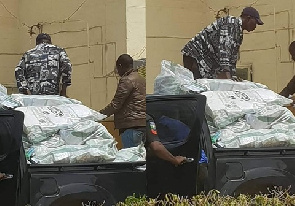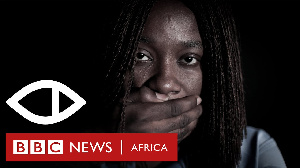Zayed sustainability prize Q&A for the nation, Nigeria

The 2019 Zayed Sustainability Prize, the UAE’s pioneering global award in sustainability, has honoured leaders whose work and spirit of enterprise has resulted in working solutions across communities around the world. This year the highest number of applications came from Africa, testament to the growing role African innovators are playing in global innovation. Their technologies address real-life social, environmental, health and economic challenges, and reflect the aspirations of a new generation of innovators within a continent that has one of the world’s highest youth populations. Picking up the Prize in the Health Category was We Care Solar who will receive US$100,000 in prize funds to enhance their existing solution and develop other sustainability projects. To date, the Prizes’ 76 winners have directly and indirectly impacted the lives of over 318 million people.
Interview with We Care Solar (Health Category Winner, Zayed Sustainability Prize)
Laura Stachel, MD MPH – Co-Founder and Executive Director, We Care Solar
1. What is the motivating factor behind ‘We Care Solar’ and when did it come into existence?
Around the world, 300,000 mothers die from complications of pregnancy and childbirth: 14% of those deaths happen in Nigeria alone. Yet health workers are often ill-equipped to save lives and a high percentage of health centers lack reliable electricity. Without electricity, midwives and doctors struggle to provide care. The non-profit organization We Care Solar incorporated in 2010 with a mission to save lives in childbirth by bringing clean reliable electricity to maternal health centers.
The organization was co-founded by Dr. Laura Stachel and her husband, Hal Aronson, a solar innovator, after Laura went to Northern Nigeria in 2008 to study ways to lower maternal mortality. She witnessed deficient conditions in Kofan Gayan hospital (in Kaduna State) including sporadic electricity that was a barrier to life-saving care. Without a reliable source of electricity, nighttime deliveries were attended in near darkness, cesarean sections were cancelled or conducted by flashlight, and critically ill patients waited hours or days for life-saving procedures. The outcomes were often tragic.
Hal designed an off-grid solar electric system for Kofan Gayan hospital targeting the maternity ward, labor room, laboratory and operating theatre. The maternal death rate at the hospital decreased markedly the subsequent year and more women could receive care at night.
Surrounding health centers began asking for solar electricity and Hal and Laura needed a solution that could scale. Hal designed a suitcase-sized system for Laura to carry to primary health centers. The response was overwhelmingly positive. When demand for the Solar Suitcases increased beyond Kaduna, Laura and Hal began working with an engineer to create a Solar Suitcase that could be manufactured at scale.
2. What makes the solar suitcase a solution to own by African communities plagued by poor energy distribution?
We Care Solar and its partners donate Solar Suitcases to qualifying health centers so that maternal health workers can have a reliable source of lighting, a fetal Doppler (heart rate monitor), phone charging and medical device charging. It has been designed specifically for African health centers to be safe, reliable, long-lasting, and simple to use. We Care Solar training programs build local capacity in solar installation, usage and maintenance so that there can be local ownership of the Solar Suitcase equipment. Health workers learn to use and maintain the equipment. Local health committees and community members are informed about the importance of this intervention and can play a critical role in the long-term maintenance of the equipment.
3. Can you tell us how Solar suitcase works, and how far has it gone in shaping African healthcare services?
The Solar Suitcase is a complete solar electricity system. It has a solar panel to generate electricity, a solar charge controller to regulate the electricity, and a battery to store the electricity. This unique technology includes medical LED lighting, rechargeable headlamps, a phone charger and ports to charge small medical appliances. It is transformative for health centers that work in centers without power, or have sporadic electricity, it replaces candles, kerosene lanterns, diesel fuel generators, and cell phone lights.
We Care Solar conducts its training and solar installation programs in partnership with government agencies, international NGOs and UN agencies, reaching hundreds of health centers through our programs. In Nigeria, our primary partner has been Pathfinder International.
We have now launched our Light Every Birth initiative. Light Every Birth ensures that EVERY mother in a country has access to a public health facility with reliable lighting and essential power. It means that mothers no longer need to fear going to a darkened health center at night.
4. Who is the solution made for – is it for both public and private healthcare providers?
The funding we receive has primarily been for providing energy access to public health facilities. But the Solar Suitcase can work in both public and private health centers. The only limiting factor is funding.
5. Aside from delivery processes and related medical services in off-grid rural areas, what can it be used for?
The lights on the Solar Suitcase are designed to be excellent for surgical care as well as medical procedures. They have been used for a range of surgeries. They could also be used in pediatric wards, emergency rooms, and for a range for medical and dental applications. We also have provided Solar Suitcases to help with emergency response after natural disasters such as typhoons, earthquakes and hurricanes. Their durability, portability and ease-of-use have made them ideal for this function.
We have another branch of our organization (We Share Solar) that deploys Solar Suitcases to schools and refugee centers. You can learn more about We Share Solar at this website: www.wesharesolar.org
6. What are some of the challenges experienced during the formation and delivery process of the innovation?
We spent two years working with Nigerian health workers on early prototypes of the Solar Suitcase – seeing what parts of the design worked, and what needed to be improved. Any time there was a part that failed or an instruction that was unclear, we improved the design of the Solar Suitcase.
For delivery channels, we work with trusted partner organizations to ensure that our technology can safely reach last mile health centers.
7. Is there a way you monitor the spread of the device across the African markets to avoid substandard solar suitcase being passed around?
We work in partnership with trusted organizations – large international NGOs and UN agencies that share our commitment to quality products. We ship our Solar Suitcases directly to our partners, conduct capacity-building workshops so that our partners can conduct Solar Suitcase installations. We monitor the quality of the installations and provide technical support as needed.
8. How durable, secure and affordable is it?
The Solar Suitcase was designed not to fail. This institutional-grade solar electric system is durable and safe. The system is enclosed in a rugged polypropylene plastic case that fixes to the wall as a permanent cabinet. It has overcurrent protection, and includes institutional-grade cables and connectors.
To equip a clinic with a Solar Suitcase costs approximately $3,000 including the Solar Suitcase, installation hardware, training, transport, and a 5-year battery. With a replacement battery (< $200) at 5 years, the system lasts for 10 years.
9. What is the significance of winning the Zayed Sustainability Prize to the company?
The Zayed Sustainability Prize is significant in several ways. First, the award shines a light on the important role that clean energy can play in maternal-newborn health care – an area of development that has often been overlooked. Second, being within the Zayed Sustainability community increases our reach with other organizations working to build a sustainability future. Finally, the unrestricted funding that comes with the Zayed Sustainability Prize enables us to deepen our programs and strengthen our organizational capacity in Africa.
10. What are the other pioneering solutions and technologies that we should be expecting from We Care Solar?
We have programs in education and humanitarian aid. Our We Share Solar program encourages young people to learn about energy poverty and then design and build Solar Suitcases for youth in under-resourced schools and refugee camps. Our humanitarian aid program deploys Solar Suitcases to health workers responding to natural disasters and medical outbreaks. We have provided support after the Ebola outbreak in West Africa, the Nepal earthquake, the Puerto Rico hurricane and other humanitarian challenges.
11. What are the company’s motivating factors and vision for the African continent?
No woman should die giving life, no matter where she lives. Every woman has the right to a safe delivery yet millions of families in Africa live in remote communities where health centers are in darkness each night. We want to ensure that EVERY last mile health center is equipped with life-saving light and electricity. Our vision is a world where every woman has a safe delivery and every health worker has the power to save lives.
12. What challenges are you having in scaling this program in Nigeria?
We have requests from Nigerian government agencies to scale our programs, but funding is sadly lacking. With additional resources, We Care Solar could expand our reach across Nigeria. As part of our Light Every Birth initiative, we aim to reach every public health center in need in a state. We have worked with Pathfinder International in Cross River State, and there are 70 health centers still waiting for light. We are also working in Kaduna, Gombe and Niger.
About the Zayed Sustainability Prize
Established by the UAE leadership, in 2008, to honour the legacy of the UAE’s founding father, the late Sheikh Zayed bin Sultan Al Nahyan, the Zayed Sustainability Prize is the UAE’s pioneering global award for recognising sustainability and humanitarian solutions, around the world.
With an annual awards ceremony, held each year during Abu Dhabi Sustainability Week, the Zayed Sustainability Prize acknowledges and rewards pioneers and innovators who are committed to developing and accelerating impactful solutions that serve disadvantaged communities and people – building a lasting legacy, today, for the future generations to come.
The Zayed Sustainability Prize categories are Health, Food, Energy, Water and Global High Schools.
For more information, please visit Source: ZayedSustainabilityPrize.com





